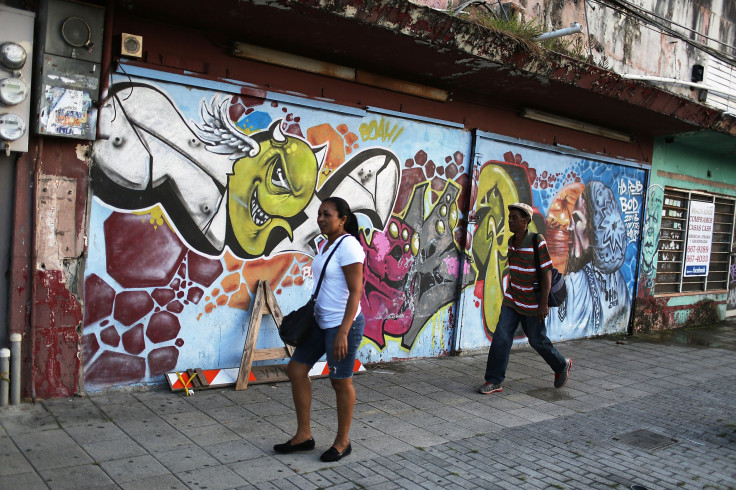Zika Outbreak 2016: Virus Hits Debt-Stricken Puerto Rico Amid US Soccer Team Arrival

With dozens of storefronts shuttered, bearing signs that read “se vende” — “for sale” — the marks of Puerto Rico’s ongoing debt crisis are made visible throughout the main city of Old San Juan. As the cash-strapped U.S. territory missed most of another debt payment earlier this month, it has had to contend with another crisis: namely, the Zika virus.
As the U.S. national soccer team arrives in Puerto Rico Sunday for a series of friendly matches, the territory continues to cope with an outbreak of the mosquito-borne virus. While the island long has been a tourist destination, attracting visitors through its proximity to the U.S., as well as its white-sand beaches and coral reefs, mutually reinforcing debt and health crises could scare visitors away at the usual height of the tourist season later this summer.
Following the declaration of a public health emergency by the World Health Organization in February, the virus, which had been concentrated in Latin America, has spread to the U.S. with risks of moving to Europe in the coming months. Of the nearly 300 cases of the zika virus suspected in the U.S., nearly half are in Puerto Rico where 122 women are believed to have the virus, according to the Center for Disease Control and Prevention (CDC).
Zika is a virus with relatively mild symptoms such as fever, rash, joint pain and conjunctivitis. Many people who are infected do not realize they have it, and the symptoms usually clear up on their own within a few days. The risks are much higher for pregnant women, however, as the virus can cause serious birth defects, such as microcephaly.
Children born with microcephaly have abnormally small heads as their brains do not develop properly in utero. The severity of the condition varies, and in the most extreme of cases a child can die if his brain fails to develop enough to regulate vital bodily functions.
“One challenge of this Zika virus outbreak is the lack of understanding of the magnitude of risk and the spectrum of outcomes associated with Zika virus infection during pregnancy,” researchers from the CDC wrote in an excerpt from a report on the virus in the U.S., released Friday.
Meanwhile, an ongoing debt crisis has forced doctors to go unpaid and many more to leave the country altogether. Sinking under $72 billion of debt, the territory’s government recently missed most of a third scheduled payment earlier this month. Already struggling with high poverty levels, limited access to healthcare and specifically Medicaid, a lack of sufficient public funds has made it difficult for many residents to get the care they need.
“Certainly Puerto Rico has a long-standing issue that a disproportionate share of its residents are low income, but Puerto Rico and the other territories are treated differently in terms of how they receive federal funding,” Edwin Park, the vice president for health policy at the Center on Budget and Policy Priorities, a nonpartisan research institute, told Al Jazeera in September.
With limited doctors and growing fears surrounding Zika, these dual crises could sink tourism rates this summer. Tourism to Puerto Rico was down 3 percent in February and 5 percent in March, according to statistics from the Puerto Rico Tourism Co. And while those numbers cannot be explicitly tied to Zika and the debt crisis, they coincide with when the virus was first declared a public health emergency. Tourism is an important part of the territory’s economy, with the hotel business comprising 7.1 percent of the entire island’s GDP, ABC News reported.
Two major league baseball teams canceled plans to play a series in Puerto Rico earlier this month, citing health concerns over the virus. Tourism professionals on the island meanwhile have urged caution.
“We feel this has been blown out of proportion,” Clarisa Jimenez, president and CEO of the Puerto Rico Hotel and Tourism Association, told ABC News in May, adding. “We have taken all the measures that the CDC has recommended from day one.”
© Copyright IBTimes 2024. All rights reserved.






















